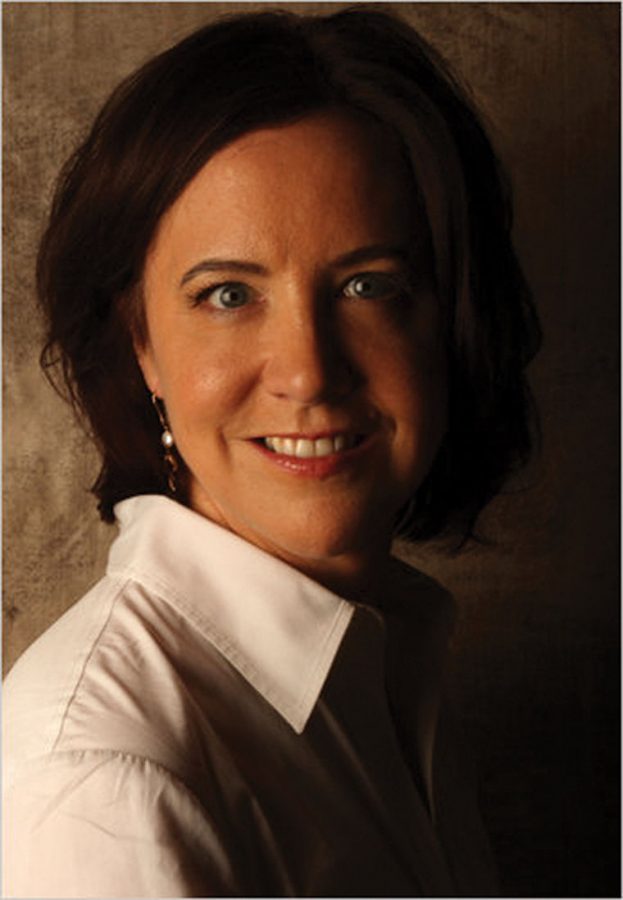Author Kim Barker says ‘WTF’ about the war on terror
Prior to becoming the South Asia Bureau Chief for the Chicago Tribune in 2004, Kim Barker worked for The Seattle Times.
February 29, 2016
“Whiskey Tango Foxtrot” is a laugh-out-loud war comedy from “Saturday Night Live” scribe Robert Carlock. The film stars Tina Fey as Kim Baker, a war reporter in Afghanistan and Pakistan who is based on Kim Barker, the real-life author of the memoir “The Taliban Shuffle.” Barker’s book is based on her experiences in the Middle East after making the bold decision to leave her desk job with the Chicago Tribune.
The film, as well as the book, examines the region and its political turmoil through the lens of farce, employing dark humor to illuminate the absurdity of the situation as well as Barker’s personal struggle for growth.
The Chronicle spoke with Barker about her experiences reporting overseas and her comedic approach to writing her autobiography.
THE CHRONICLE: Why did you become a war-reporter in Afghanistan and Pakistan?
KIM BARKER: After 9/11, it kind of felt like the story was in New York. I was sitting at the Chicago Tribune, and I wanted to go to New York.
As time went on, it was very clear that we were going into Pakistan and Afghanistan, and they were sending people from our Metro Desk. I was watching my neighbors volunteer, and I wanted to see if I could do it. I had never done anything like it, and I wanted to go to where this had started. I wanted to challenge myself by seeing if I could cover it, and I just wanted to have the experience.
We had a female editor at the time, and I heard that they were interested in trying out some women [in the Middle East], so I volunteered. I went into the foreign editor’s office, and I’m a smart-ass, so when they asked me what my skillsets were, I said, “I’m Kim Barker, I’m single and I’m childless. Therefore, I’m expendable.”
When did you decide to record your experiences as a memoir?
When I first arrived in Pakistan, I had no idea what I was doing. I was incredibly naive [and] I made countless mistakes. The first time I was there, I forgot my money, and I asked where the closest ATM was. They introduced me to people as the [Chicago Tribune’s] 16-year-old correspondent. It was a little condescending, but fairly accurate in terms of my experience covering foreign affairs.
Everyone who had been [overseas] for a while was always saying they wanted to write a book. They had all seen so many crazy things, and they all had different ideas about what their books would be like. Most of it was pretty serious, and I decided I wanted to do something funny that reflected the absurdity of everything we had seen there, and this weird double life we had in which we were going back and forth from chaotic parties at night to covering war in the daytime. I wanted to see if it was possible to do that, so I decided that I was going to do a black comedy about the war on terror.
When [the Chicago Tribune] called all the foreign reporters back to Chicago, I decided that I could either roll the dice and do the scary thing or do the safe thing. I quit, and it was very scary. Then, I had no choice but to write the book.
Was it a challenge to employ humor in the context of such a serious situation?
There were certain things in the book that I wrote in a fever pitch, and when I look at them, I feel as if they could come off as a little bit callous. However, it was very raw, and I wrote the book at a furious pace while feeling very angry. I felt angry about what I saw happen in Afghanistan and Pakistan and the direction I saw those countries going; I felt angry about the Chicago Tribune. For me, dark humor and absurdity was the only frame I could put on it. I think a lot of people are like that. Foreign correspondents are like that, the troops are like that, and police officers or emergency room doctors can be like that. When you see a lot of horrible stuff, and you have to get through the day, you use dark humor to cope.
“Whiskey Tango Foxtrot” is scheduled to open in Chicago theaters March 4. Check back March 7 for The Chronicle’s full review of “Whiskey Tango Foxtrot.”








